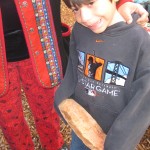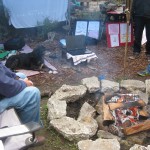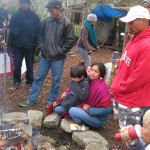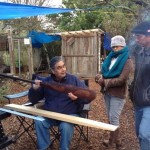12/12/12 greets me with a text for a friend’s dad’s funeral. yesterday another friend’s uncle passed on. for me this year has been the records high of folks who have passed on, whether my family members or friend’s parents and other relations. it is the cycle of life and death and the after life. recently i had a conversation with nang lilia cajilog that bangka is more than just a physical vessel. Maria Bernadette L. Abrera wrote in her abstract called: Bangka, Kaluluwa at Katutubong Paniniwala
“Bangka” is the general Philippine term for all kinds of seacraft, variously classified since the sixteenth century as a small and light vessel to a large commercial boat. This term is not found in the seventeenth century Visayan and Bikol vocabularies and instead there appears its synonym, “baloto” whose form and function are the same as that of the bangka.
The rituals involving the bangka reveal that it is more than a water vessel in Philippine culture: it is a repository of an entire belief system in indigenous society. From the selection of the tree, felling it, digging it out or hewing it into planks, to the construction and until its launching into the sea, the entire process is wrapped in rituals and religious meanings. The bangka mirrors clearly and directly the indigenous animist belief system. The rituals involved in burial and the use of the bangka as a vessel to transport the departed to the next life are analyzed, revealing the worldview of Filipinos. These all indicate the belief not just in the bangka as a “soul boat” but in a “soul of the boat” itself.
honoring those who have transitioned, I am thankful to find more of Maria Bernadette L. Abrera’s work on another paper, The Soul Boat and the Boat-Soul: An Inquiry into the Indigenous “Soul.”
*******
Perhaps you will find via an epic film, Lapu Lapu, directed by National Artist Lamberto V. Avellana, the first 6 minutes of the film shows the rituals involved in burial. Good luck!



